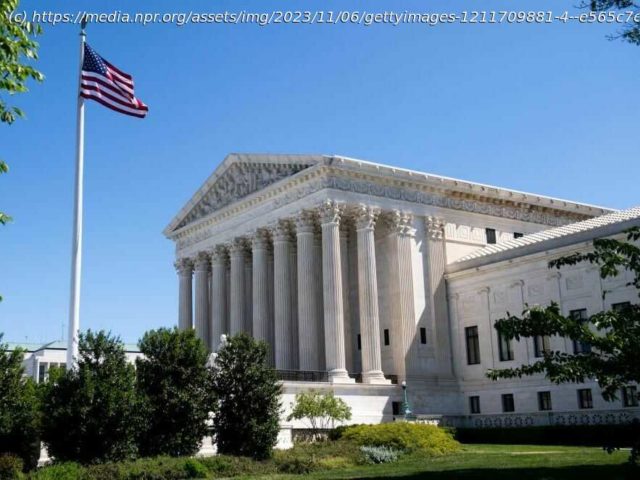If the federal law falls, so would similar laws in most states, and other important gun laws.
The Supreme Court hears arguments Tuesday in a case that could invalidate the federal law barring guns for anyone who is the subject of a domestic violence court order. If the federal law falls, so would similar laws in most states, and other important gun laws.
The case is the next chapter in the high court’s new Second Amendment doctrine.How the case got to the court
Sixteen months ago, the conservative court majority broke sharply with the way gun laws had been handled by the courts in the past. In a landmark decision, the six-justice majority ruled that in order to be constitutional, a gun law has to be analogous to a law that existed at the nation’s founding in the late 1700s.
Since then, Second Amendment advocates have brought all manner of challenges to state and federal gun laws across the country, plunging the lower courts into conflicting conclusions about how precise the analog has to be. Tuesday’s case is the first to test of how far the conservative court wants to go, and how precise the analog has to be. At issue is the federal law that makes it a crime for anyone subject to a domestic violence court order to possess a gun.
The defendant in the case, Zackey Rahimi, is something of a poster child for why Congress passed the law in 1994. In 2019 he assaulted his girlfriend in a parking lot, and after realizing that a bystander saw the assault, he fired a gun at the witness, and threatened to shoot his girlfriend if she told anyone. Two months later, a Texas court granted her a protective order, suspended Rahimi’s gun license, and warned him that possession of a gun while the order remained in effect is a federal felony.
Rahimi repeatedly violated the court order, threatened another woman with a gun and fired a gun in five different locations in a period of one month—incidents that ranged from shooting a gun repeatedly at another driver after a collision, to firing multiple shots in the air after a fast-food restaurant declined a friend’s credit card. When police searched his residence, they found a pistol, a rifle, magazines, ammunition, and a copy of the protective order.
He pleaded guilty to charges of violating the federal gun law and was sentenced to six years in prison. But he continued to press his constitutional challenge, and ultimately the Fifth Circuit Court of Appeals ruled that the law is unconstitutional because there was nothing like it in the 1790s. The federal government appealed, contending that there is a long historical tradition in this country of disarming people who are dangerous.The legal arguments
Former Deputy Solicitor General Michael Dreeben, who was in charge of the Justice Department’s criminal appeals docket for 24 years, says there is a good reason there is no precise analog from the 1700s.
Home
United States
USA — Political Supreme Court to decide if gun bans for domestic abusers are constitutional






